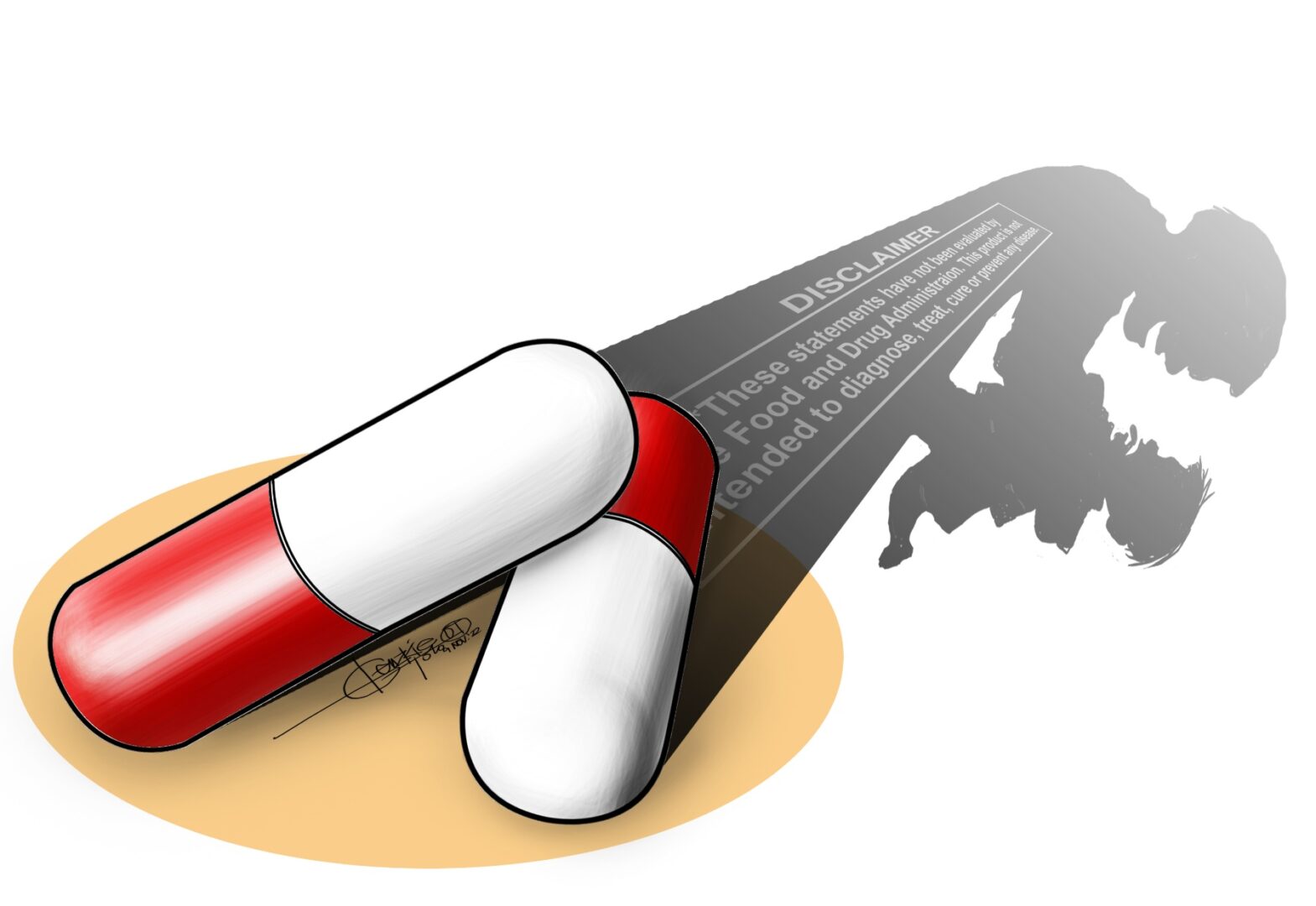Section 15, Article II of the Constitution mandates that “The State shall protect and promote the right to health of the people and instill health consciousness among them.”
Sections 11 to 13, Article XIII of the charter are additional provisions on public health. In particular, Section 12 ordains that “The State shall establish and maintain an effective food and drug regulatory system and undertake appropriate health manpower development and research, responsive to the country’s health needs and problems.”
The foregoing constitutional mandates are enforced by two principal government agencies, namely, the Department of Health and the Food and Drug Administration. There is also Republic Act 7394, or the Consumer Act of the Philippines, which prohibits the sale of any product that is hazardous to health.
Withal, Congress, the DoH, and the FDA ought to investigate the proliferation of so-called “multivitamin, food and dietary supplements” that are currently being advertised and marketed in the Philippines on television and online.
These “supplements” are usually pills, capsules, or “teabags” packed in small boxes or plastic bottles and advertised and marketed as “organic” or “vegetable” products that should be imbibed by people who drink too much alcohol and may have liver problems, and by those who may have diabetes, kidney problems, and urinary tract infection.
The advertisements suggest that the “supplements” are vehicles to health and wellness. They appear to be produced by professional advertising agencies, and they are aired quite frequently on the leading television channels, especially during afternoon and evening prime time.
Although the labels of the more common of these “supplements” mention a license to operate issued by the FDA, there is nothing in the labels that indicates if the pills, capsules, or “teabags” are safe for public consumption.
For many gullible consumers, the LTO listed on the label is tantamount to a certification by the FDA that the pills, capsules, or teabags are safe for public consumption.
Likewise, there is a vague disclaimer at the end of the advertisements stating that the “supplements” have “no approved therapeutic claims.” The disclaimer is also found on the labels of the products themselves.
Surprisingly, details about what that disclaimer actually means are not stated in either the advertisements or the labels.
The fact that advertisements of these “supplements” are all over television and online sources suggests to unsuspecting consumers that either the DoH and the FDA have authorized their sale, marketing, and distribution, or are tolerating such sale, marketing, and distribution.
In fine, since the DoH and the FDA do not seem to protest those advertisements, consumers get the wrong impression that these “supplements” are safe for public consumption.
Here’s the disturbing news. A scrutiny of these “supplements” yields very alarming results.
Scientific information available online reveals that most of these “supplements” have no known or established medical benefits.
Keen observers also note the clever, crafty, and calculated use of cushioning phrases in the products’ labels, such as “a possible effective treatment,” “used as an anti-bacterial product,” “not a substitute for a balanced diet”, and other equivocal phrases to the same effect.
Equally unsettling is their casual use of the generic warning “if symptoms persist, consult your doctor.”
A certain “neuro” concoction supposed to address problems of the nervous system is anomalously advertised on television as a “doctor-prescribed” product.
One very popular brand of “multivitamin dietary supplement” frequently advertised on television carries a warning on its label (in fine print) that the product contains enough iron to harm a child.
Goodness, gracious! This “supplement” is particularly dangerous because many consumers believe that multivitamins are not harmful products.
What happens when a parent shares this “multivitamin dietary supplement” with his or her child, with the mistaken impression that vitamins are harmless to anyone and everyone? The prospect of juvenile death is dreadful.
Public interest demands that Congress, the DoH, and the FDA should address this serious public menace immediately.
